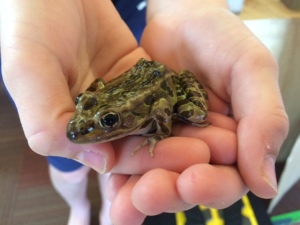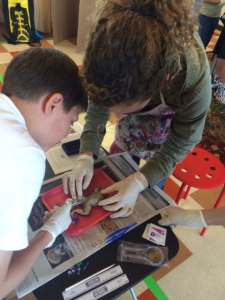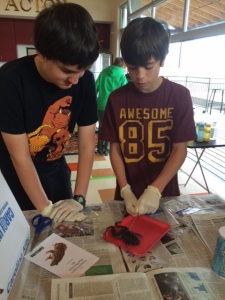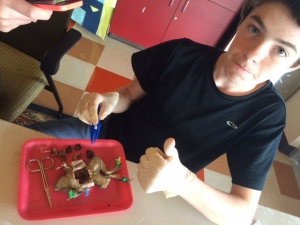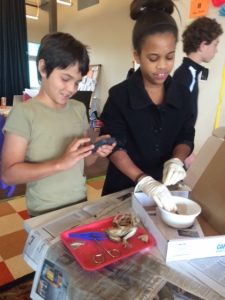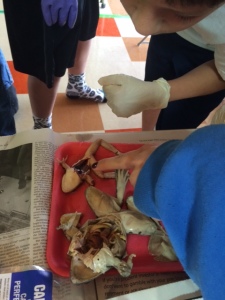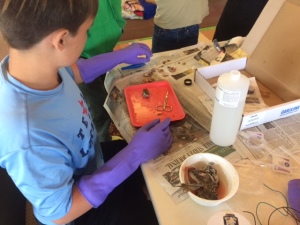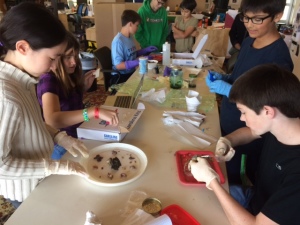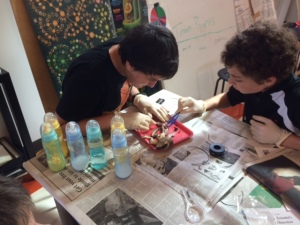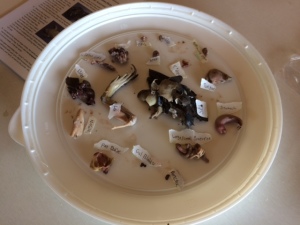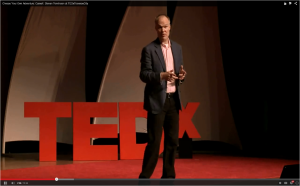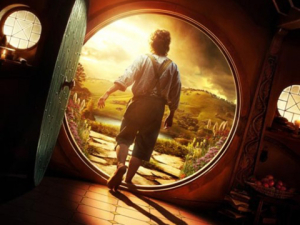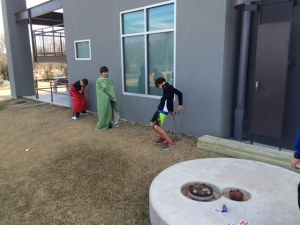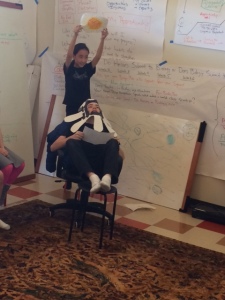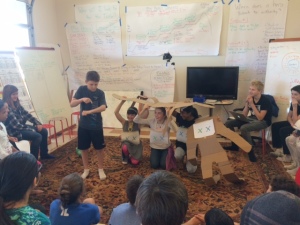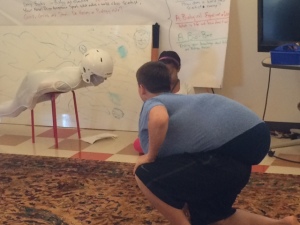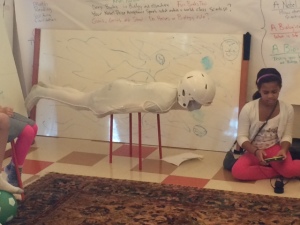This was Animal Week for the Biology Quest.
Eagles studied animal behavior, taxonomy and physiology, preparing for the end of session Biology Bee.
More importantly, each Eagle faced a difficult moral dilemma:
1. Perform a dissection and a series of experiments on a frog freshly (and humanely) killed, taking care that the scientific lessons were worth it.
2. Instead, perform fewer experiments on a preserved frog. This meant Eagles would not have to kill a frog, but by purchasing a frog killed by someone else, might encourage the killing of more frogs in the future.
3. Refuse to do any work on a real frog, recently alive or preserved, and instead rely on a virtual dissection alone.
These difficult decisions led to a week-long series of ethical discussions and angst. All the while, Eagles were working on experimental protocols from famous experiments by Galvani and others. Unlike some traditional schools, most of the challenges weren’t simple prearranged experiments, but complex endeavors that required a great deal of pre-planning and thought.
In the end, several of the more complex experiments failed. Everyone completed a complex dissection and a few teams managed to test various chemicals like nicotine and caffeine on a beating frog heart; but no one was able to animate a frog’s legs with electricity. Just like real scientists, the results were unpredictable and often frustrating.
The final verdict? Three live frogs were humanely sacrificed. Three more were granted a pardon and sent home, with at least some chance of surviving. One Eagle bravely abstained from working on any real frogs on moral grounds, and received a round of applause for his courage.
Real, messy science. Difficult ethical decisions with real consequences. Learning Science not as a mantra, but a messy work in progress.
